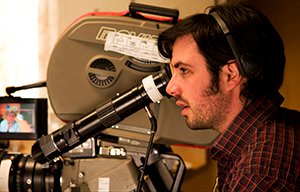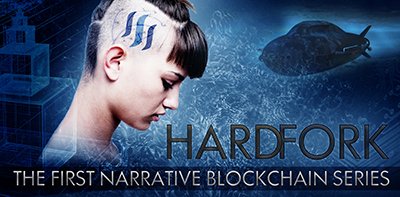Did They Steal WEST SIDE STORY from my Grandma's Book?
That's no exaggeration. Let me explain. With news today that Steven Spielberg plans to remake West Side Story I thought it was time to lay out the details.
Everything points to this remake being a bad idea. Not just because the film itself is perfect, but also my guess is he won’t take as radical an approach as he might if he was going back to the original source material.
Fifty years ago, my grandmother, Madeline Amgott, along with cowriter Dale Kramer, wrote a book called Teenage Gangs. An investigative journalist and news producer, my grandmother embedded herself with a group of upper West side ruffians. These kids were as rough-and-tumble as they were young and lively.
What’s amazing is just how much of the classic film was directly lifted from her book. They didn’t even bother to change character names and dialogue. She was rather bitter about this the entirety of her adult life. I’ve never seen any documentation that the filmmakers optioned the book from my grandmother and her co-writer, but it’s an outside possibility that they did. I sure hope so.
One thing that’s super cool about the book and I think would be an amazing addition to any film project based on it is that it didn’t shy away from showing what these kids lives were actually like.
TEEN-AGE GANGS

Fifty years ago, the quintessential American tale of star-crossed lovers was released on the silver screen, set in the gritty streets of Manhattan and centering on the troubled youth that defined a generation. West Side Story went on to win 10 Oscars and galvanized its place as a timeless classic. But the real story has never been told.
“A malted steadied the nerves. Coffee pepped you up, and liquor was all right when there was straightaway action. A few sniffs of heroin really sent you into a rumble stark, raving wild. But a malted was the thing for just before a conference.”
Malted milk and smack. A winning combination.
Two years before the iconic film was even conceived, a female reporter in her early thirties, Madeline Amgott Karr, was deep in the trenches with an as yet undiscovered youth culture for her first book: Teenage Gangs. Leaving the comfort of her modest Manhattan life, she ventured into the heart of New York’s Puerto Rican gang territory, Spanish Harlem, where she began interviewing and observing social workers, law enforcement officers, and eventually the gang members themselves.
As Madeline (Grandma) began to follow the real life misadventures of her subjects, her life became impossibly intertwined with theirs, as she discovered that so many of the gang members were not hardened criminals, but boys (some as young as twelve) just looking for acceptance and a chance to make something of themselves in a world of poverty, violence, and racial tension. They may have talked tough and carried guns and knives, but they spent most of their time hanging out at the candy store, chasing girls, and playing stickball. Many of them saw something more for themselves – education, a family, a career – or ideally, becoming a “smart money man,” becoming independently wealthy without having to work much at all:
“Soft hands are a badge of distinction. Much time is spent manicuring nails. Getting money without working is the be-all and end-all.”
Of course, this dream was the exact opposite of gang life, with its 12-18 hour days, physical exertion, and constant threat of danger. But as the boys are constantly rejected by society at large, and see their friends, families, culture, and neighborhoods struggling to survive, the gang is often the one place they can find true acceptance and respect, and feel like they’re making a real contribution.
“The gang creates a society of its own. It has its own laws, its own recognitions of merit, its own loyalties. The gang becomes a substitute for home and for normal society, and therefore its members often cling to it with the same tenacity with which older and better-adjusted men cling to homes and native land.”
Ironically, it’s this wanting to do what’s right, defend their homes, and change things for the better, or simply being in the wrong place at the wrong time, that often leads to tragedy, as Madeline witnessed all too many times:
Sandpiper
Sandpiper, leader of the Emeralds, is not the best fighter, but he has brains – he knows sometimes it’s just as important to build allies as to raise fists. When he hears that Zebra from the War Hawks has been seeing Louise, an Emerald girl, he has no choice but to set up a rumble. But he insists on a fair fight, between the War Hawks’ Ralphy, and the Emeralds’ own Red Frankie. All goes as planned, but then just as Ralphy is almost beat, he pulls a knife and cuts Frankie. Sandpiper takes out his gun just to scare them, but he accidentally shoots Ralphy. Ralpy dies on the street and Sandpiper is arrested.
Paro
Paro had a difficult childhood full of abuse, neglect, and hunger, with immigrant parents who never fully adjusted to their new lives in NYC. He acted out constantly, in desperate need of attention, and so was always in trouble. He was sent away to schools and reform programs where he always thrived, but when he returned home nothing had changed and he was easily pulled back into gang life. He even tried to take a regular job on his own, but when Italian and Irish gangs started terrorizing his predominantly Puerto Rican neighborhood, he couldn’t stay away. As the leader of the Golden Jaguars, he tried to promote a less violent and drug dependent lifestyle as a way of strengthening the gang, but it was not well received. One night some of the Jaguars came to warn him of the possible consequences of his actions, and when a gun was drawn Paro was accidentally killed.
Action
Action, one of the lead members of the Atomic Jets, had just received his draft papers. Inspired to live his life to the fullest, he decided to make a move on Angel-O, a Warrior girl, when all the gangs were together at the Friday night dance. He showed up in a nice car, with a new suit (and a new gun), and swept Angel-O away on the dance floor. Cobra, a Warrior, was furious, and a fight was called between them, which Action easily won. But by the time he got back to Angel-O, she had set her sights on a “smart money man” named Buck, and so rejected Action’s advances. She slapped him and when he raised a hand back the bouncer rushed in, followed by all the Jets. In the struggle that ensued, Action’s gun fell from his pocket. It fired twice into the crowd, and someone screamed that a woman had been hit. As Madeline’s telling of the story ends, Action was being held by the bouncer as the police and ambulance were on their way.

As my grandma, Madeline, continued her research, and began to compile the material for the book with her co-author Dale Kramer, her intentions could not have been more genuine. It’s clear that she was not concerned with profits, or shock value. Her only motivation was to educate the public about this growing epidemic, so that the boys she worked with, and those in other parts of the country, would receive the help they needed. In fact, the very way that she chose to write and format the book was in the best interest of the boys, from protecting their identities to making the book accessible to general audiences:
“…We have avoided sociological interpretations and chunks of statistics…The characters are composites, but nonetheless real for that. The situations are camouflaged. Yet these kinds of things happened, are happening, and will continue to happen…”
“[responding to the use of composites and false names] Gang members are apt to be proud of seeing their names in print, and further inflation of sick egos is hardly desirable. In many cases the individuals mentioned are trying to reform, and more notoriety might interfere with their rehabilitation.”
“…we have sought to avoid sensationalism while endeavoring to give a rounded picture of the gangs.”
The book was released in 1953 and received a quietly positive reception – while it was greatly appreciated by educators, social workers, and other professionals already aware of the issue, perhaps because of the lack of Hollywood sensationalism it just didn’t attract the public interest as hoped.
Meanwhile, starting in the late 1940s, Jerome Roberts had been telling Arthur Laurents and Leonard Bernstein about his new idea for a musical called East Side Story, a Romeo & Juliet story of a young romance bringing together Catholics and Jews on the Lower East Side. Seeing similar stories already in the works, they tossed aside the idea for several years, until “suddenly” (as it’s been reported many times in the media) in 1954, just a year after the publication of Teenage Gangs, they were allegedly inspired by news of warring Mexican and Puerto Rican gangs to re-envision the musical as West Side Story. They brought on Stephen Sondheim, and the rest was history.
Here's a detailed analysis I had drawn up by my researcher Sarah McGinnis...

No one would question the brilliance of West Side Story
The story, the music, the choreography, all ahead of their time and still known and loved by audiences today. It's one of my very favorite films and contributed greatly to my wanting to become a director. But as grandma knew all too well, the details – the gang culture, the relationships between characters, the events, and even some of the exact character and gang names (which she and her co-author had made up to protect the identities of their subjects) – were all but original.
While West Side Story skyrocketed to success, as a musical, film, and general cultural phenomenon, Madeline Karr quietly continued her work as a successful reporter, even working as a correspondent in the White House. From time to time she would mention her book and how it inspired West Side Story, but friends and family rarely paid much attention – after all, who doesn’t know someone with an “I invented that first!” story?
For many many years I had the fantasy of turning teenage gangs into a film. I even went so far as to draw up a contract with my grandmother for her life rights but could never bring myself to ask her to sign it. There’s a reason for this. Westside story is a sacred piece of film art. It shaped my life as much as anything I’ve ever seen on screen. I think many of us feel the same way. As good as my grandmother’s book is it’s a different take entirely and in many ways the darkness around it might hamper the memory of the wonderful musical which drew "inspiration" from it.
With the advent of crypto, my discovery of Steemit and my diving into the creations of the @hardfork-series with the incredible team, I feel like I've not only found my niche but that any other film project I was working on before not just takes a backseat, but is in fact something I can completely let go of.
It’s a wonderfuly liberating feeling.
I wish Stephen Spielberg and the team behind this reboot all the best, I think it’s entirely possible they'll make a great film. And I for one can be sure that it won’t negatively impact the memory of the original, or my grandmother's book, because I won’t go see it.
If you want to know more about my grandma, check out her New York Time Obit. She was an amazing lady. Miss you grandma!
What do you think about the remaking of West Side Story? I’d love to hear your thoughts! And if you had an amazing relative who did incredible things let us know!
Yours in the Chain,
Doug
PS. Special thanks to Sarah Mcginnis for all her Teenage Gangs research.

I am a Brooklyn based writer, film & commercial director, and crypto-enthusiast, my projects include @HardFork-series an upcoming narrative crypto-noir and my novel Dwelling will soon be premiering exclusively on Steemit, and you can check out more of my work at dougkarr.com, piefacepictures.com, and www.imdb.com/name/nm1512347
Please comment, up-vote and resteem and I'll gladly upvote your comments!


Wow!
This is an AMAZING story, I am not surprised that you come from a blood line of cutting edge, brave and intelligent lineage!
This was quite a write up and an epic tale in and of it self!
Thanks for sharing this part of your history, it was very interesting and I feel like I understand a lot more about what makes you, YOU!
Love you so much man, super stoked to get to know you better and collaborate on renowned works that will be remembered decades to come!
Thanks dude!! Your kind words and friendship are amazing. Yeah she was a pretty mind blowing lady, driven, New York tough, brilliant, and sometimes even a sweet grandma ;-) she tried to talk me out of becoming a filmmaker for years. Never actually put the pieces together till this moment, but maybe this ^ was why. Can’t wait to continue the conversation we had today! Talk soon.
hahahaha well there is a lot to be said for her trying to talk you out of it as it is a nasty industry but because of what you are doing NOW I am glad she didn't and you kept on! It will all be worth it once you make the first decentralized Hollywood blockbuster!
I got your back man, I am here for you, believe in you and feel that NOW is the time to revolutionize the industry!
Talk soon!
Oh wow. What a talented and underappreciated lady! Every time the other half puts on the musical, I'll have something to tell her now. Thanks for sharing Doug.
Your granma...wow. She had cause to feel bitter, but she's far from the only one. At least two science-fiction authors have been shafted in that way; likely more.
It takes me time to read it but it deserve that wonderful
Piccata? Titicaca! I am Cornholio! I need piccata for my bunghole!
your grandmother is worthy of attention and respect. You have a unique family talent for writing and creating art creating creativity. I definitely think that your grandmother's books deserve special attention. A detailed analysis is a good job.
I also want to read and evaluate your upcoming novel (made especially for Steemit) under the title "Dwelling". I think it will be awesome.
Well, your writing talent is deeply embedded in your genes. Your grandmother surely was a talented writer and she deserved appreciation for writing in an innovative way and on burning issues of the her era.
Thank you so much for providing glimpse of writing abilities of your grandmother.
Wow! How interesting!
Growing up, West Side Story isn't a movie that I would've ever chosen to watch, but in middle school, our English teacher had us watch it numerous times. By the end of that year, I thought it was a pretty good movie - I'll never forget it, now. haha
Your grandmother was an exceptional woman. It is too bad that she did not credit on the film. I don't wish anyone ill will but sometimes I think that remaking films would be better left alone. To me, it seems like either they have run out of fresh ideas or they want to capitalize on the success of the film. Classics should be left alone for sure!
She is just owesome .. sometimes we heard unecpected things from unexpected ones
@dougkarr, Woah.....Pretty interesting. Glad to hear your grandma's talent. I'm surprising grandma's awesome every time with her writing skills and writing book. Nice time to finished read excellent story. Thanks for inspiration.
Keep going with @hardfork-series.